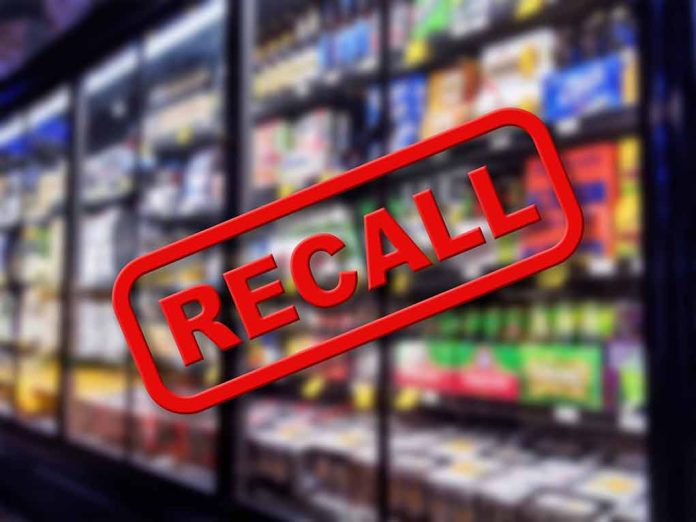
A multistate salmonella outbreak linked to contaminated eggs prompts a major recall, leaving consumers scrambling to check their refrigerators.
At a Glance
- 65 people in 9 states infected with salmonella linked to recalled eggs
- 24 people hospitalized; no deaths reported
- Eggs from Milo’s Poultry Farms LLC identified as the source
- Recall affects eggs sold in Illinois, Michigan, and Wisconsin
- CDC warns of antibiotic-resistant strain, complicating treatment
Widespread Salmonella Outbreak Traced to Eggs
The Centers for Disease Control and Prevention (CDC) has announced a significant salmonella outbreak affecting nine states, with 65 confirmed cases linked to contaminated eggs. The outbreak has resulted in 24 hospitalizations, raising concerns about food safety and public health. Milo’s Poultry Farms LLC has been identified as the source of the contaminated eggs, prompting a widespread recall of their products.
The recall affects eggs sold under the labels “Milo’s Poultry Farms” and “Tony’s Fresh Market” in Illinois, Michigan, and Wisconsin. All carton sizes, types, and expiration dates of eggs from these brands are included in the recall. The CDC is urging consumers in these states to check their egg supplies and dispose of or return any affected products to prevent further infections.
Egg recall is linked to a salmonella outbreak, CDC says: See which states are impacted https://t.co/vAah5NOuIo
— USA TODAY (@USATODAY) September 8, 2024
Antibiotic-Resistant Strain Complicates Treatment
Adding to the severity of the outbreak, the CDC has reported that the salmonella strain involved is resistant to nalidixic acid and ciprofloxacin, two commonly used antibiotics. This resistance complicates treatment options for those infected, potentially leading to more severe and prolonged illnesses. The CDC is closely monitoring the situation and working with health authorities to manage the outbreak effectively.
“The symptoms of the bacterial infection include diarrhea, fever and abdominal pain and usually begin within three days of ingesting the contaminated food, the F.D.A. said.”
While most people recover from salmonella infections within a week without treatment, certain populations are at higher risk for severe complications. Children under five, the elderly, and individuals with weakened immune systems may require medical intervention or hospitalization. The CDC emphasizes the importance of seeking medical attention if symptoms persist or worsen.
Recall Details and Consumer Guidance
The recall was initiated after the Food and Drug Administration (FDA) discovered the outbreak strain in Milo’s Poultry Farms’ packing facility and hen egg laying house. In response, Milo’s Poultry Farms LLC issued a recall on September 6, 2024, for all their egg products. Consumers are advised to thoroughly check their egg supplies and take appropriate action if they have purchased the affected products.
“Eggs labeled “Milo’s Poultry Farms” and “Tony’s Fresh Market” are subject to the recall, which was announced on Friday, because they may be contaminated with salmonella, a bacteria that can cause serious and sometimes fatal infections, the Food and Drug Administration said. The recall includes all carton sizes and expiration dates.”
The CDC recommends that consumers who have purchased the recalled eggs should not consume them and instead dispose of them or return them to the place of purchase. Additionally, any surfaces or items that may have come into contact with the recalled eggs should be thoroughly washed with hot, soapy water or in a dishwasher to prevent cross-contamination.
Ongoing Investigation and Reporting
Health officials believe that the actual number of infections may be higher than reported, as many people recover without seeking medical care or testing. The CDC continues to investigate the outbreak, with cases reported from late May through August. Consumers are encouraged to remain vigilant and report any suspected cases to their local health departments.
As the investigation unfolds, the CDC and FDA are working closely with state and local health departments to contain the outbreak and prevent further infections. This egg recall serves as a stark reminder of the importance of food safety measures and the need for constant vigilance in our food supply chain to protect public health.













